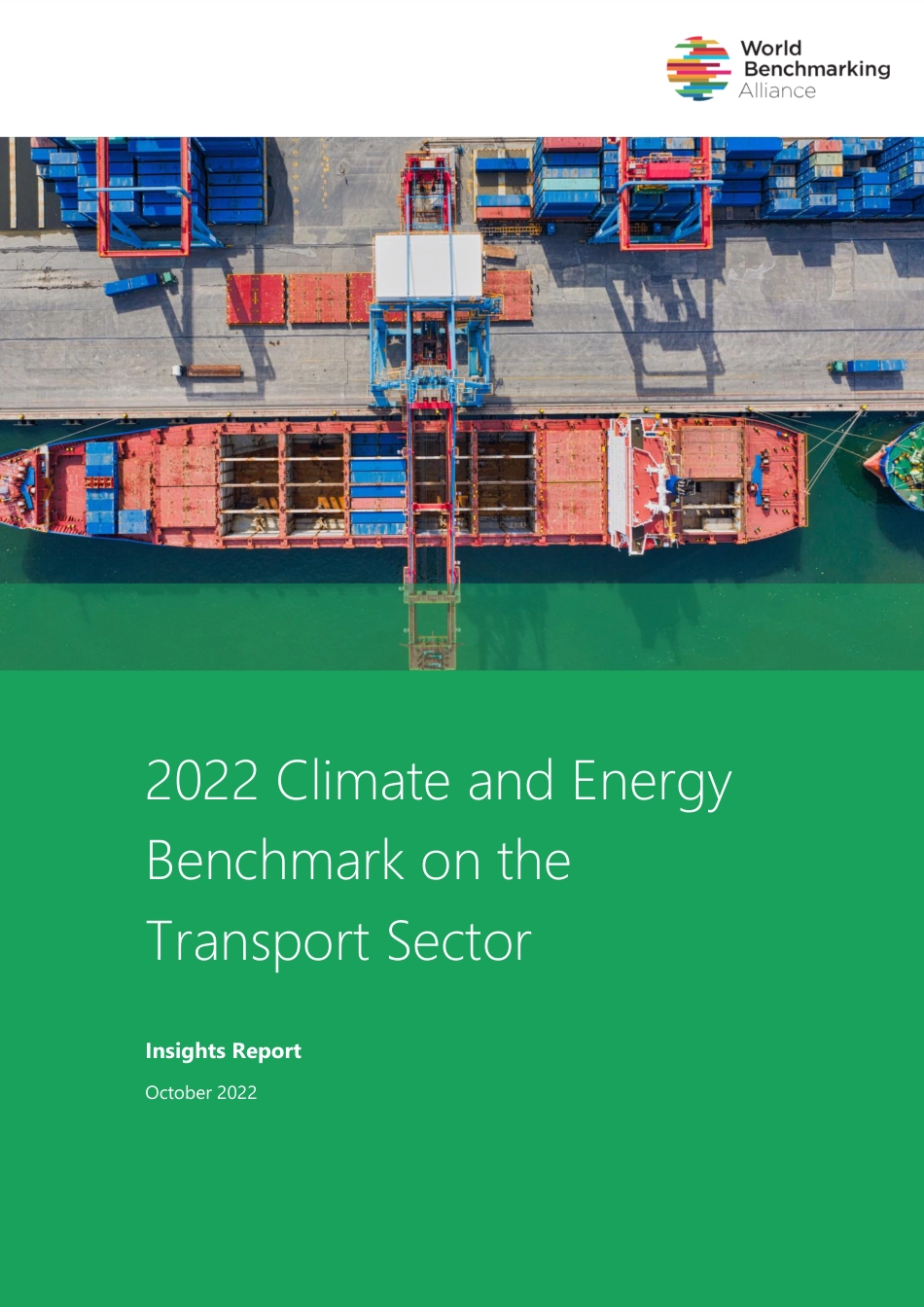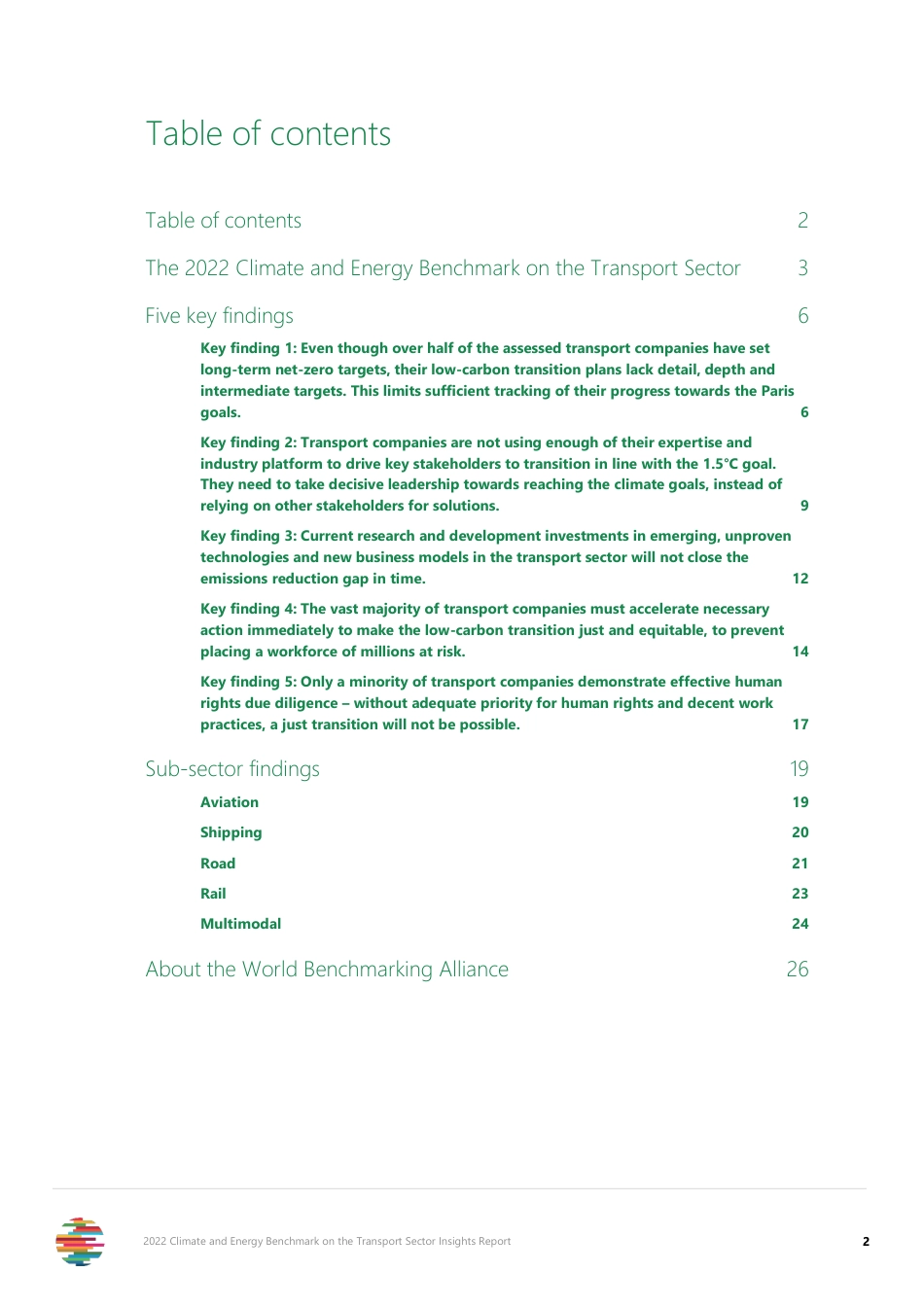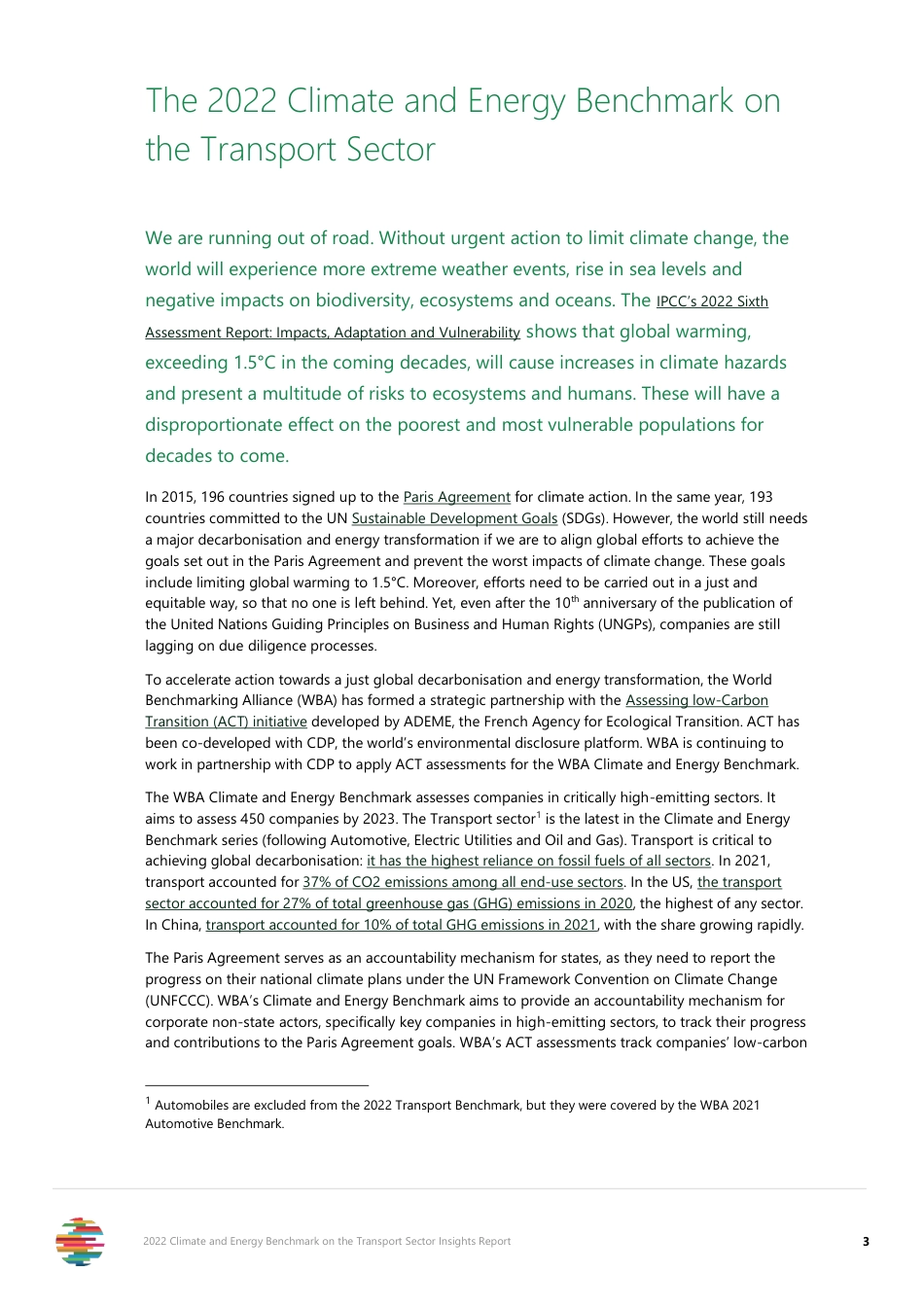2022 Climate and Energy Benchmark on the Transport Sector Insights Report October 2022 2022 Climate and Energy Benchmark on the Transport Sector Insights Report 2 Table of contents Table of contents 2 The 2022 Climate and Energy Benchmark on the Transport Sector 3 Five key findings 6 Key finding 1: Even though over half of the assessed transport companies have set long-term net-zero targets, their low-carbon transition plans lack detail, depth and intermediate targets. This limits sufficient tracking of their progress towards the Paris goals. 6 Key finding 2: Transport companies are not using enough of their expertise and industry platform to drive key stakeholders to transition in line with the 1.5°C goal. They need to take decisive leadership towards reaching the climate goals, instead of relying on other stakeholders for solutions. 9 Key finding 3: Current research and development investments in emerging, unproven technologies and new business models in the transport sector will not close the emissions reduction gap in time. 12 Key finding 4: The vast majority of transport companies must accelerate necessary action immediately to make the low-carbon transition just and equitable, to prevent placing a workforce of millions at risk. 14 Key finding 5: Only a minority of transport companies demonstrate effective human rights due diligence – without adequate priority for human rights and decent work practices, a just transition will not be possible. 17 Sub-sector findings 19 Aviation 19 Shipping 20 Road 21 Rail 23 Multimodal 24 About the World Benchmarking Alliance 26 2022 Climate and Energy Benchmark on the Transport Sector Insights Report 3 The 2022 Climate and Energy Benchmark on the Transport Se...



